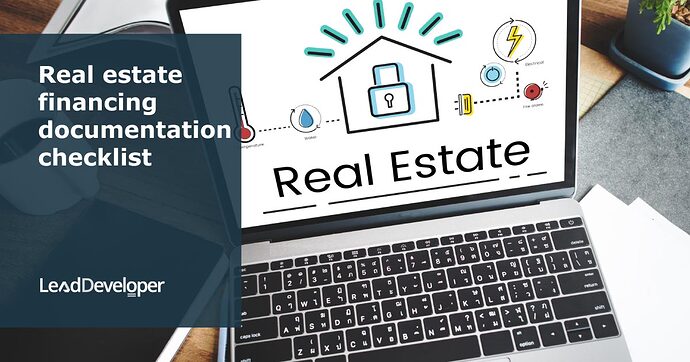1. Acquisition loan
1.1. Appraisal requirements
1.2. Other documentation
- Purchase agreement or contract for the property.
- Personal financial statements of the borrower.
- Business financial statements, if applicable.
- Proof of funds for the down payment.
2. Development loan
2.1. Revolving lines of credit
- Line of credit agreement.
2.2. Documentation for development loans
- Current financial statements of all borrowers and investors.
- Contract documents for investor partnerships or joint ventures.
- Proof and description of personal collateral.
- Personal guarantee.
- Company income tax statements.
- Personal income tax statements.
3. Construction loan

 You are missing out if you haven’t yet subscribed to our YouTube channel.
You are missing out if you haven’t yet subscribed to our YouTube channel.
4. Permanent and interim financing
- Mortgage loan application.
- Credit history and credit score.
- Employment and income verification.
- Property appraisal and inspection reports.
- Title insurance.
5. Other types of land purchase agreements
5.1. Purchase money mortgage
- Mortgage agreement.
- Property appraisal.
5.2. Options on land
- Option agreement.
- Earnest money deposit.
6. Partnerships and investors
- Partnership or investor agreement.
- Proof of capital contribution.
- Investor’s financial statements.
- Business plan or project proposal.
7. REITs (Real Estate Investment Trusts)
- Investment prospectus or offering documents.
- Proof of investment in the REIT.
- Account statements showing ownership.
8. Joint ventures
- Joint venture agreement.
- Capital contribution details.
- Business and financial information of all parties.
- Project business plan.
9. Pension funds
- Investment proposal.
- Proof of eligibility for investment.
- Pension fund documentation.
- Due diligence documents.
10. Documentation for development loans (additional)
- Company history and organizational structure.
- List of previous real estate development projects.
- Personal and business references.
- Project-specific documents:
- Physical location and legal description of the project.
- Land appraisal.
- Land survey.
- Proof of clear title to the land.
- Market study.
- Project feasibility study.
- Pro forma analysis.
- Conceptual site plan.
- House plans and elevations.
- Conceptual estimate of all project costs.
- Project approval, land development, and construction schedules.
- Proof of required and timely zoning approval.
- Proof of approval to use existing infrastructure.
- Development agreement outlining the project’s contribution of infrastructure to the city or county, length of time for installation, and method of dedicating infrastructure.
- Proof of all required environmental clearances and permits.
- Description of development and marketing plans.
You are missing out if you haven’t yet subscribed to our YouTube channel.





